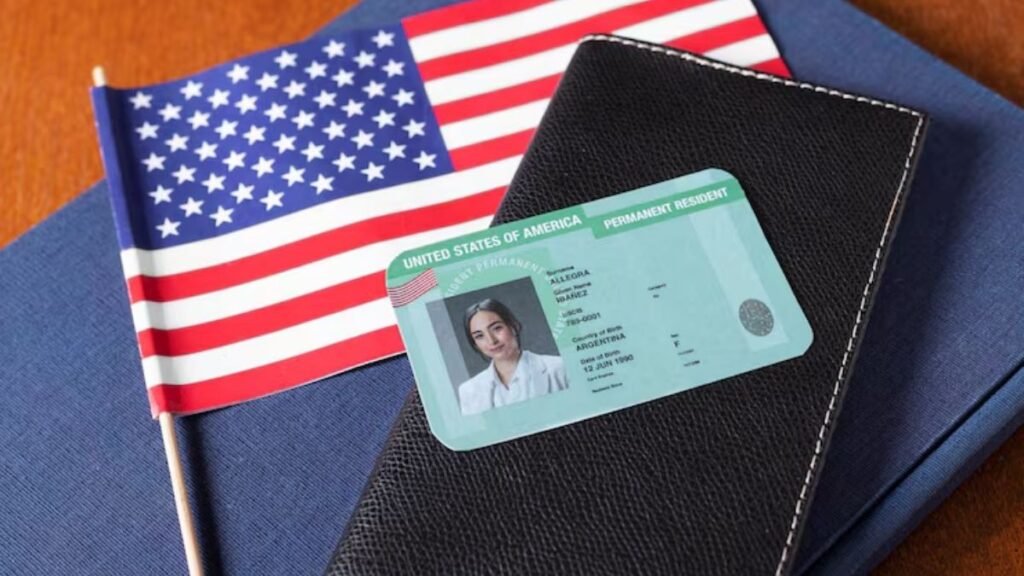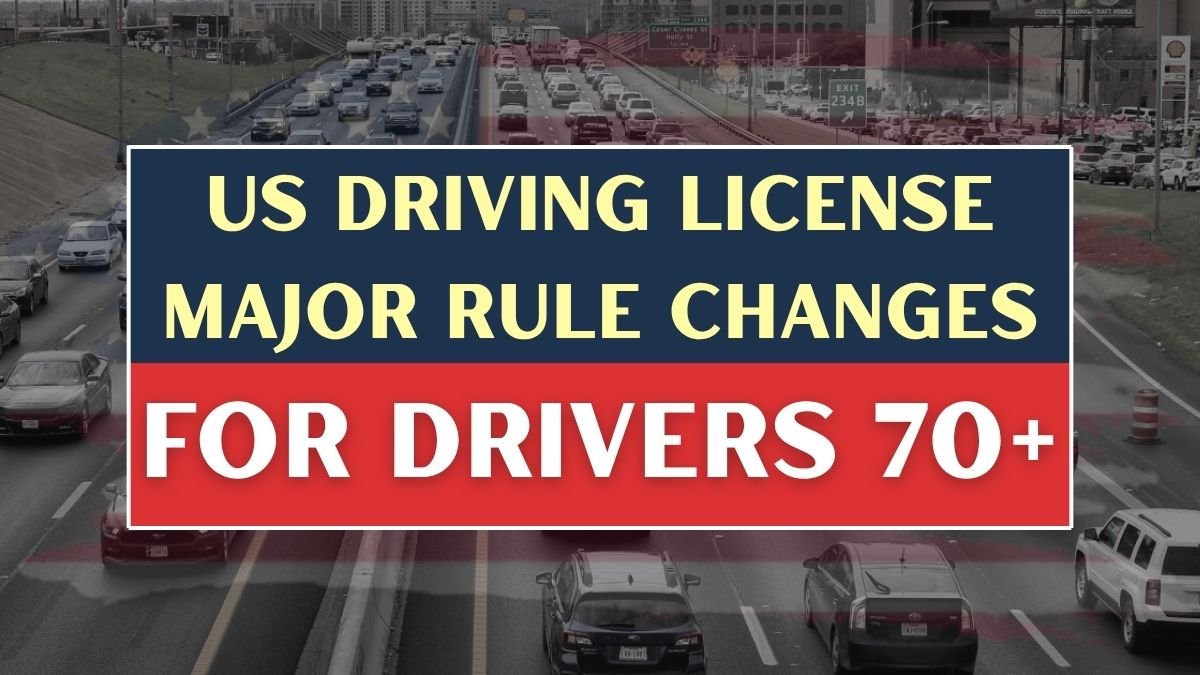Starting October 2025, the U.S. Department of Transportation will implement a new national rule for senior citizens, i.e., drivers aged 70 and older. This new law aims to strengthen road safety while also maintaining the independence and self-reliance of older Americans.
As the senior population in the U.S. continues to grow rapidly, this policy will ensure that driver’s license renewals are now based on age, not a person’s actual abilities.
Why This Change Was Necessary

Currently, more than 48 million people in the U.S. aged 65 and older hold driver’s licenses, and this number will increase further in the coming decades. Most of these people lead fully active lives. They rely on their vehicle for shopping, doctor’s appointments, and social events.
But some physical and mental changes are natural with aging. Problems like slower reaction time, weakened vision, and memory issues can affect driving ability.
Therefore, this new rule has been introduced not to take away the license of the elderly, but to assess who can still drive safely. This means that ability, not age, will now determine whether a person can drive on the road.
Key Features of the New Law
Under this new rule, the driver’s license renewal process has been phased according to age and ability.
| Age Group | Renewal Requirement |
|---|---|
| 70–79 years | Standard renewal with vision and reaction test |
| 80–86 years | In-person renewal every 2–4 years |
| 87+ years | Annual road test and medical certification required |
This system is not a punishment for the elderly but a protective measure. It will help identify in time whether a person needs assistance or correction in driving.
Required Tests and Evaluations
Various tests may be required depending on the state and the individual’s health. These include:
- Vision Test: To check whether a person’s vision is sufficient for driving.
- Cognitive Screening: Memory, decision-making, and reaction time will be evaluated.
- Road Test: Specifically for those aged 87 and older, or when a doctor or family member raises safety concerns.
Can anyone report a senior driver?
Yes, family members, caregivers, or doctors can notify the DMV (Department of Motor Vehicles) if they believe an elderly person is unable to drive safely.
However, reports should only be made based on genuine safety concerns, not personal biases. The DMV may then re-evaluate the driver’s competence.
Differences in State-Level Rules
Although this policy will be implemented at the federal level, implementation will vary from state to state. Some states will have strict rules, while others will be more flexible.
| State | Unique Requirement |
|---|---|
| California | In-person license renewal required after age 70 |
| Florida | Vision test required at every renewal for drivers over 80 |
| Texas | Mandatory annual check-ins after age 85 |
| New York | Doctor’s note may be required for drivers 80 and older |
These variations are intended to allow each state to implement policies tailored to the needs and safety standards of its senior citizens.
Restricted Licenses: A Safer Alternative
Some senior citizens don’t want to give up driving altogether, but their abilities are limited. For them, a restricted license is a better option. This allows driving with certain conditions, such as:
- Daytime driving only permitted
- Driving is only permitted within the local area.
- No driving on highways
Such regulations maintain the independence of senior drivers while also ensuring road safety.
What are the options when driving is no longer safe?
If driving is no longer safe for someone, there are several alternatives available:
- Ride-sharing services like Uber or Lyft
- Community shuttle services and paratransit programs
- Volunteer driver programs
- Help from family or friends
These options allow seniors to maintain their mobility without risk.
Conclusion: Balancing safety and independence
These new rules, which will come into effect in October 2025, are not designed to take away seniors’ independence but to ensure everyone’s safety on the road. FAQs Through these rules, the government is sending the message that safety comes first, regardless of age.
Through individual assessments, limited licenses, and alternative transportation, seniors will not only be able to continue driving but also make safe transitions if needed.
FAQs
Q. When will the new driving license rules for seniors take effect?
A. The new federal rules for senior drivers will begin in October 2025.
Q. Who will be affected by the new policy?
A. The policy applies to drivers aged 70 and older across the United States.
Q. Will all seniors lose their licenses?
A. No, the new rules focus on individual assessments, not automatic revocation based on age.
Q. What kind of tests will seniors need to take?
A. Tests may include vision exams, reaction tests, cognitive screening, and road tests depending on age and condition.
Q. Can a family member report an unsafe senior driver?
A. Yes, family members, caregivers, or doctors can report concerns to the DMV for a safety review.


